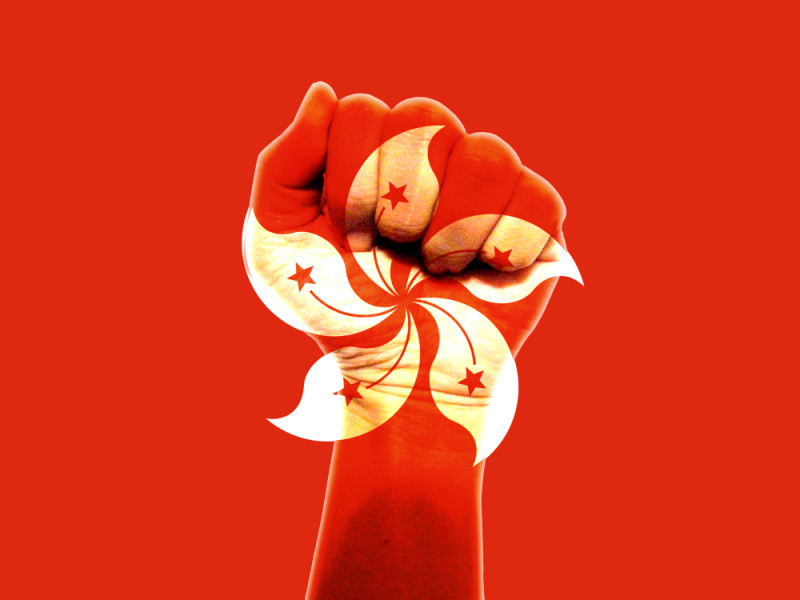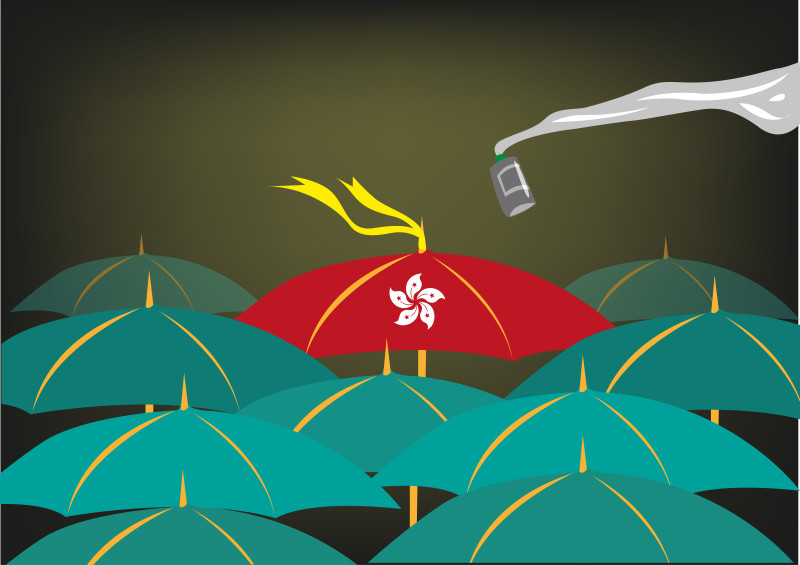Interviews with more than 100 victims in 23 countries, along with internal government documents, reveal this mess and how the game is played
Between Chinese and French flags, President Xi Jing and his wife, Peng Lignuan, landed from their state -of -the -art airplane under a rainy sky in Paris last May. Arriving for the first part of a five -day tour to strengthen European ties, the couple were warmly accepted by a multitude of Chinese who waved the red flag of their country and groups that danced traditional dances with dragons and lions under the sound of drums and gong.
On the other side of the city, Jiang Shengda’s phone hit. The leader of Le Front de la Liberté en Chine, a small group of Chinese activists and artists, was preparing to speak to hundreds of protesters at Place de la République, a famous space for freedom of expression.
The artist born in Beijing and activist was used to talking to big crowds, denouncing China’s silence practices. However, that day he faced an agonizing dilemma. Jiang’s mother was calling from Beijing. Jiang thought he knew why: Chinese police forced her to make the calls, he told the International Researchers’ Partnership in a recent interview. He didn’t pick up the phone.
“It would certainly convey the message of the authorities that I should not participate in public activities during Si Jing’s visit”Jiang told ICIJ, with his face hidden behind dark sunglasses and surrounded by long hair and a sloppy music.
Jiang is one of the hundreds of Chinese living abroad, whom the Chinese authorities have immediately targeted, through “hacking” and monitoring, and indirectly, through interrogators, friends, and even former teachers, writes “El Pais” in an article.
The pressure and control exerted on the young activist is part of a sophisticated, global campaign designed by the Chinese government to bully, what analysts call “international repression”.
The ICIJ and its media associates interviewed 105 people in 23 countries, who, such as Jiang, have been targeted by the Chinese authorities in recent years because they have criticized government policies publicly and privately.
These people include Hong Kong’s Chinese and political dissidents, as well as members of the oppressed minorities of the Uyers and Tibet. They have stood out for the defense of the rights of China’s national minorities and to address other issues considered taboo by the Chinese Communist Party, including the independence of Taiwan and Hong Kong and the Falun Gong movement (known as Falun).
‘The essence of the Communist Party has not changed’said the Michael Kovriga former diplomat from Canada and a specialist in China’s foreign policy. “What has changed is its potential. They can do more, so they do more. “
China rejects allegations of transnational repression as ‘unfounded’ and “Made from a handful of countries and organizations to slander China”according to Liu Pengyu, a spokesman for the Chinese Embassy in Washington.
As part of the investigation, the ICIJ worked with journalists on five continents to interview people who had been targeted and analyzed their affairs. The ICIJ also examined a 2004 Chinese Police Manual and confidential guidelines for internal security officers dating back to 2013. Subsequently, journalists compared the tactics described in the internal documents with the experiences of 105 “goals”, as well as with secrets and surroundings. China and nine people-“goals”.
The repression in all its greatness – what the research has shown
Half of the targets asked by ICIJ and media associates said that the harassment was extended to family members in the homeland, who were bullyed and interrogated by police or state security officials once or more.
Several victims told ICIJ that members of their family in China or Hong Kong were harassed by police shortly after participating in demonstrations or public events abroad. Sixty said they believed they were being watched or that they were targets of monitoring or espionage by Chinese officials.
Twenty -seven said they were victims of an online slander campaign and 19 said they had received suspicious messages or had experienced infringement, inter alia, by government agencies. Some reported that their bank accounts in China and Hong Kong had been frozen.
Officers of both the Ministry of Public Security and the Ministry of State Security – two of the Chinese information capacity – were responsible for the intimidation of these people and their families, as evidenced by the testimonies. Twenty -two people said they had received physical threats or that they were attacked by citizens of supporters of the Communist Party (CCP). All in all, the figures reveal a coordinated and systematic attempt by the Chinese government to silence any annoying voice.
Repression manual
After the slaughter of Tiananmen Square in 1989, when the Chinese army killed at least 10,000 peaceful protesters, dozens of activists fled abroad, establishing human rights organizations in New York, Paris and other cities.
“As soon as the dissidents left China, they were largely inaccessible. Could continue their activities »said the Katja Drinhausenhead of the research program “Chinese Politics & Society” in Berlin. “They created networks for action abroad. “
In response, he said, the Chinese authorities decided that “They wanted these organizations quiet and disappeared.”
They created a global network of cross -border repression, coding methods of control and repression of the dispersion members in local internal security guidelines, police manuals and other internal documents intended for security officers in China and abroad. Some of them were examined by ICIJ. Among the internal documents is a Police Academy’s handbook that includes tips on “Research abroad”.
Research abroad is part of a hidden plan and its goal, according to the manual, is to identify individuals and organizations outside China that plan, direct or fund activities that endanger socio -political stability and national security of the country.
Since Si took power in 2012, the suppression of the party’s enemies considered, including those abroad, has intensified, experts said. In internal announcements, Si himself has urged security officials to remain alert to the “Western Anti-Chinese forces”, including dissidents.
A folder and the unwanted visits
The son of a state security officer and grandson of a high -ranking government official who had been sent to Mongolia, Jiang had attended Beijing Elite schools along with other children of the rich and powerful.
At the age of 18, Jiang joined the US -based political team for a while, supporting the constitutional democracy in China. The attempt to activate him in serious trouble: he was arrested, accused of inciting state power and removed from police.
Jiang was shocked when he discovered that police had drawn up a rich dossier for him, including private emails and comments by a primary school teacher. He was held for three nights and removed his passport for about a year. His father was forced to leave his position in foreign intelligence and went to work for a state -owned company, according to him.
In 2018, Jiang moved to France, a country admired for its democratic traditions, the culture of social protest, dating from the French Revolution, and its long history as a refuge for activists.
Around the time he arrived in Paris, members of the local community of Hong Kong were demonstrating against new security laws in their home country. Inspired, Jiang later became Le Front de la Liberté en -chine leader and began criticizing China’s policies in his art, using the name Chiang Seeta.
Faces wanted and the “dark” surveillance mechanism
Since the rise of Si to power in 2012, lawyers, journalists and academics have recorded thousands of cases of transnational repression by the Chinese authorities.
Technology for “management of public opinion”, penetration into computers of dissidents and theft of personal information from social networking platforms has also allowed the authorities to quickly target a larger number of people and automate transnational repression.
The Chinese government’s repression campaign is also based on private security companies, hackers, staff of Chinese NGOs with access to UN procedures, retired or corrupt law enforcement officials in foreign countries and members of the CCP with the CCP with the CCP with the CC.
Authorities have also turned victims into perpetrators, forcing or dragging dissidents and members of national minorities to spy on their counterparts abroad, as the court records show. In the meantime, host states are struggling to protect government targets from attacks and intimidation, ICIJ found.
Source :Skai
With a wealth of experience honed over 4+ years in journalism, I bring a seasoned voice to the world of news. Currently, I work as a freelance writer and editor, always seeking new opportunities to tell compelling stories in the field of world news.













